Talking with MC’s new president, Dr. Jermaine Williams
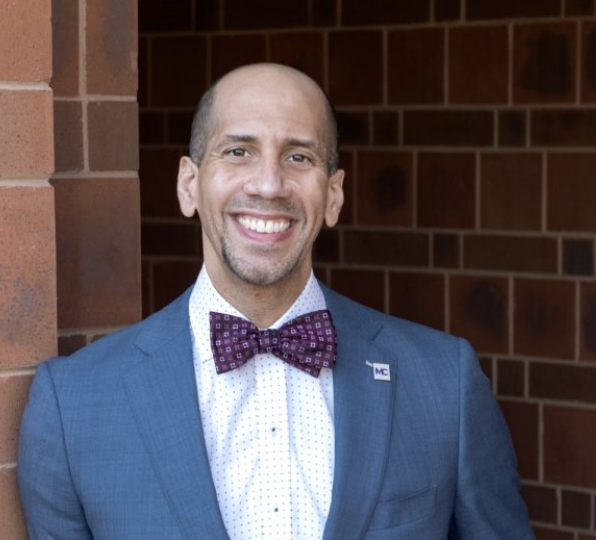
Photo credit, Montgomery College
The Excalibur interviewed Montgomery College President Dr. Jermaine Williams who became the new college president following former interim president Dr. Charlene Dukes’ brief term. Williams was appointed president in the fall 2021 semester and began his term on Feb. 28 of the spring 2022 semester. He previously served at Nassau Community College (NCC) in Garden City, New York as president and has been working in higher education for more than 17 years. Jonathan Spires, The Excalibur editor-in-chief, discussed with Williams the president’s journey to become a leader in higher education. The half hour interview has been edited and condensed for clarity.
Dr. Williams, can you talk about how you started your journey? When did you know what career you wanted to get into?
I knew the career, not necessarily the profession. I received my first master’s from St. John’s University in Queens, and it was in sociology. I wanted to practically apply that. So, I went to work at a non-profit in Philadelphia. The goal of the non-profit was to help individuals transition from public assistance to self-sufficiency. Public assistance was something I was very passionate about given my upbringing and a multitude of other reasons.
What I realized there, very quickly, was that the individuals who I was attempting to support were alienated, disenfranchised, marginalized, or [lacked] education. Education was a resounding component of what they were pursuing. Ninety-nine percent of the individuals who I was supporting didn’t have a high school degree. These were adults. Very few [were] in their 20s. Some [were] in their 20s, but really like 30s, 40s, even 50s and 60s.
With the government saying, “Okay, public assistance is not here for you anymore. You need to transition and be able to be self-sufficient, to support yourself.” I’m like, “Okay, [these] individuals don’t have a high school diploma.” I realized that I needed to transition back to higher education to focus on educational access, completion, and post-completion success in a way that addressed and ameliorated the social inequities and inequalities that we experience. It was a few years later that I realized I wanted to be a community college president.
I think it is noble of you that you’re considering everyone else around you saying, “Well all these people don’t even have a high school diploma,” but what about any social, personal challenges that you were experiencing yourself?
I was a first-generation college student. That was very impactful. I would say my brother was the most impactful person in terms of getting me through college. My parents didn’t go to college. They would’ve been happy if I went to school for one semester. It was so public, “You know Jermaine went to school for one semester!” We tell that story now, my dad’s not with us, but when I was a kid it would be, “He went to that school for one semester. He did a great job. I’m so proud of him.” My brother was really the person who was like, “Okay, what’s your GPA the first semester?” I was like, “Oh, it’s a 2 point something.” I played football in college, “I’m eligible” [I said.] He was like, “Yeah, that’s not meeting it. That’s not good enough.” I was like, “Oh, but I’m eligible. I don’t have to go to study hall anymore. My GPA’s high enough.” He’s like, “No, because you’re going to have to go to grad school. You’re going to need a 3.0. You need to focus more on your academics.”
He was the individual, and that’s kind of a personal situation. The segue to me pursuing this profession and career and passion is that I had a very personal and individual experience. I also understood the impact of one person and how that individual can help you meet your goals and how I don’t know where I would have been without that one person.
That definitely segues into my next question which is, was it with your older brother when you began recognizing and really taking advantage of the mentors and the resources offered by your community and by the academic institution?
That moment was very organic, and I think it’s another reason why I think about help-seeking behavior when we talk about student support services and meeting unmet needs. I grew up where you really didn’t ask for help. That was part of it, [and since] my father was a southern Black man with a northern White woman our circle of support was big. I would say what was bigger was the circle of discontent, or the circle of adversary [they] experienced as an interracial marriage, and my brother and I, individuals of color, knowing that our mom is White and our dad is Black.
My upbringing really lent itself to, “Wow, I’m going to find support, and I’m going to be open to support.” It was a lot of growing and experiencing the world outside of my family where I realized, “Oh there are different levels of support, and people do want to see you successful.” Later on in my undergrad, I found a professor who wanted to be supportive, but I wasn’t really attuned to the support services, which is another reason why I do what I do because I know how impactful and important it can be [from] how I grew up. I want to be able to help open those avenues and pathways for our students because we have so many robust support communities here at MC.
That’s what the initiatives like the Achieving The Promise Academy (ATPA) and the Presidential Scholars Program are all about; helping Black men realize, “Hey, the help is here.” We do have that kind of disdain for what we call “the system,” but at the same time, we also don’t exhibit that help-seeking behavior and say, “Okay, well I do need help navigating this because I don’t know how to work college. I don’t know how to work finances.” So, we have this independent mindset and keep ourselves on an island, and we struggle because of it.
Exactly, and it’s also a very vulnerable space to be in, to say, “I need help” or “I don’t know.” I’ve grown into space of vulnerability, [into] being comfortable with being uncomfortable, knowing that it’s okay to have support, and that everyone needs support, and that support makes you stronger. Those are concepts that weren’t necessarily held up in every community. [Rather], it was you were strong because you could do it yourself and because you could do it without asking for help.
It’s a paradigm shift, and asking for help is “weakness” right? It’s a real paradigm shift especially when we talk about certain communities that are under-represented and historically marginalized. Whether it’s low socioeconomic status, which spans all different demographic backgrounds, or specific communities of color, there’s an array of experiences that have people experiencing this idea of “Help-seeking is not necessarily what I want to pursue. I need to be able to do it on my own.”
No one’s independent. If you have a job, then someone had to hire you. Being independent is truly impossible. You spoke a little bit about your dad being Black and your mom being White. What was your overall impression of others’ perceptions and attitude towards you as a student and as a Black male?
It varied. We can get into a deep conversation in terms of just how we perceive and receive each other in the Black community whether it’s hair, skin tone, education, or where you live.
It really depended on the community and where I was. Was I at church? Was I at school? Was I playing football? I think people really saw me, growing up, not as an athlete, which [in school] you would have a male, Black athlete, and you have expectations and perceptions around that. I mentioned intersectionality earlier because in church I wasn’t the student athlete. I was just the engineer with audio and visual for the church. In school definitely [seen as a] student athlete, and then in the community it was different. I think we navigate in and out of these different spaces where they’re seeing us, and this is pre-intersectionality.
The groups of people we’re talking about are Whites [and] Blacks. We talk about the Latinx population a lot now, and we have been for the past few years, and about Asian-Americans and Pacific Islanders, but more than two decades ago, and even now sometimes, they’re not really in that conversation. It was Black and White. It was very mono-racial, which was interesting in itself. I’m really excited that we’ve evolved as a society to get out of the two mono-racial of Black and White. Then going deeper, and looking at complete sub-cultures, we also think about Asians [and other races and ethnicities].
I’ve kind of worked my way through this very deep question, and I’ll probably end with it changes. How I view myself has changed as I’ve evolved and as I’ve learned more. I never would have described myself as cisgender two decades ago. I didn’t even know what that was. I might journey back to that question.
I also wanted to ask you, until now, what have been your personal goals as a leader in higher education, and accepting the role of president at Montgomery College, and what success have you had thus far, in pursuing these goals?
My personal goals, or individual goals as a leader, is to have a value add. I want to be able to contribute to, as overly simplistic as it sounds, making things better. After I’m part of a conversation, or part of an initiative, I want to be able to walk away and say, “Wow. I was able to contribute in a way that left that situation better philosophically through collaboration and being inclusive.”
I have degrees, and I have experiences, but we all have degrees, and we all have experiences. I mean seriously, I’m not the smartest person in the room, but I do bring characteristics and variables that help elevate conversations that help push us towards goals, that help us communicate and foster collaboration, and that ignite an idea of care and partnership.
I bring a lot to the table, but it’s really through trying to create a psychological space that’s safe where we can actually be vulnerable and we can challenge each other in a way that is productive. [We can have] productive conflict so that we can talk about these robust issues that we have and how we can move forward, even with differences of opinions.
Then I would say kind of lastly in terms of that, is that the differences of opinions are beautiful because in the higher education world we’re working towards a similar goal. We’re here to support students. You can have differences and you say, “Oh well I want the cabinets painted blue.” [or] “Well I want the cabinets painted red.” You know, we both want the cabinets painted. We both have the same goal. That’s one of the great things about higher education and one of the things that I’ve leaned on is that we have the same goal.
Try and leave things better, and I will say the last piece about my leadership is [that] I try to lean in with emotional intelligence. To know how I’m impacting others [and] to self-regulate is another big piece. You don’t have to say everything that’s on your mind all the time. You need to be aware of how you enter a space and place, the type of vibe for lack of a better word, and how people are responding to you because that’s going to impact the level of engagement. I can talk about leadership for a long time, but I’ll stop there.
I do want to kind of close it out, but I would like to ask you, to summarize all of that, or to put in one point, what is the greatest wisdom you’ve received from your mentors? What would be the greatest piece of advice that you’ve given someone, or that you would give to someone?
My father always said, “You have some people who learn from everybody. It doesn’t matter who the person is; it doesn’t matter what the setting is. You can learn something, most likely more than one thing, from anybody. You always need to enter opportunities with that mindset of, ‘how is this an educational moment? What’s here that I know I can learn?'”
When you do that, you enter an environment with a perspective of openness, and with a perspective of this idea that you’re growing. That’s one of the big things is that I’m consistently growing, and he always said, “If you ever enter in an environment where you don’t think you can learn anything, you need to check yourself, because you’ve gone off the path. You’re never too big.” My dad [would say] as a southern thing, “You’re not too grown for learning something new.”
It also is a way of illustrating respect, a level of deference, for individuals that you meet because we’re all the same. I know that maybe it sounds a little cliché, but once we realize that we all can learn from each other a lot of things don’t matter because we’ve put ourselves in the level playing field of two human beings just hanging out, having a conversation, and learning from each other and growing and developing. I leave a conversation more informed about your positions because I’m actively engaged and wanting to embrace the communication that you’re sending.
I really appreciate you taking the time to meet with me. I appreciate you coming to Montgomery College because there are so many African American males, African males, Afro-Latinx males that are here that need the guidance. They need someone that is standing up there and saying, “Hey, it’s not something that you can do. It’s something that has been done for years. So you need to get your stuff together and get on board because we’re doing this thing.” There are plenty of successful Black people all around this country and around the world.” I’m really grateful to get to know you and to be able to meet with you. Thank you so much.
Thank you for the conversation and thank you for the opportunity. I will sum up what you said. Part of it is something that I’ve experienced, and [I] really thank you for those words because representation matters, and I didn’t experience a lot of that growing up. To be in a position that I’m so thankful and humbled to be in where we can have these conversations with people out there, and represent, and say, “Wow, this could be anybody, you’re a Black male and look at what we’re doing. Look at what’s happening.” So I will just end with that. I appreciate your kind words and the opportunity.
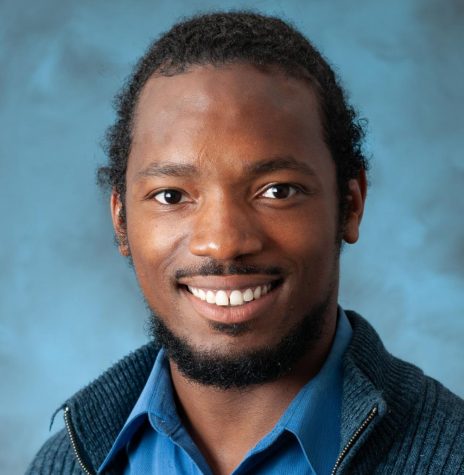
Jonathan Spires is the 2022-2023 school year Editor-in-Chief of the MC Excalibur newspaper. A current Biotechnology major, Jonathan follows the latest events within the scientific and medical communities. Outside of reporting and editing, Jonathan also works at Suburban Hospital in Bethesda, Maryland as a clinical technician. He is also musically inclined with a gift for playing piano, saxophone, and guitar.



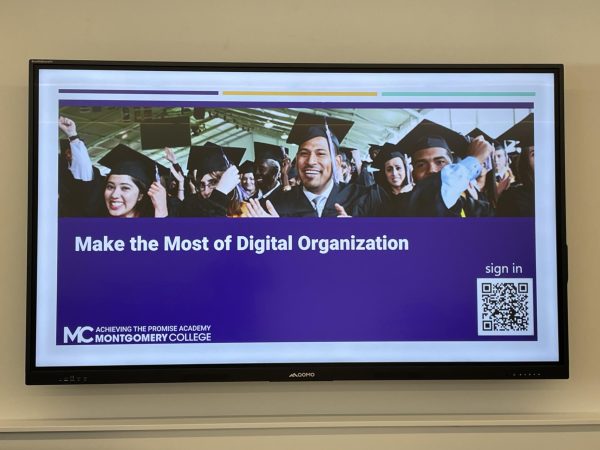
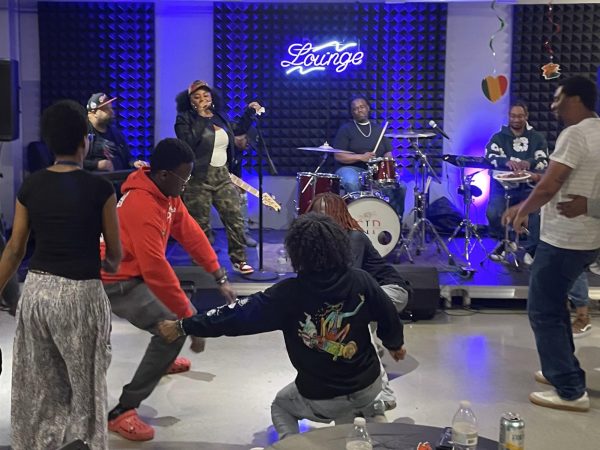
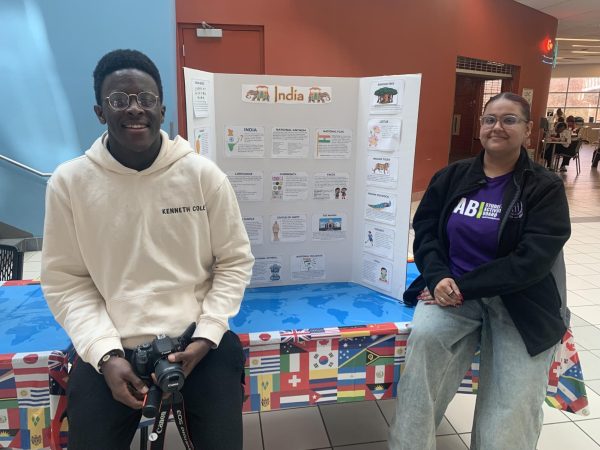
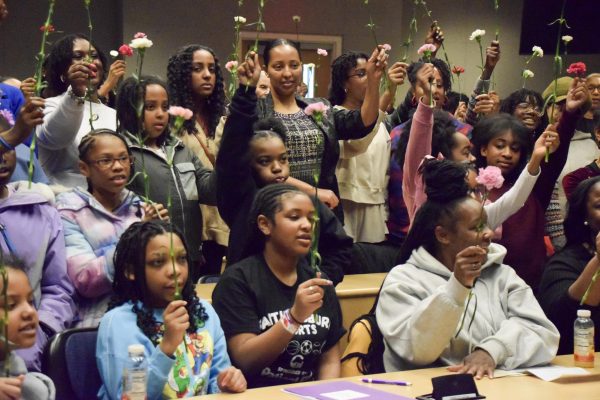
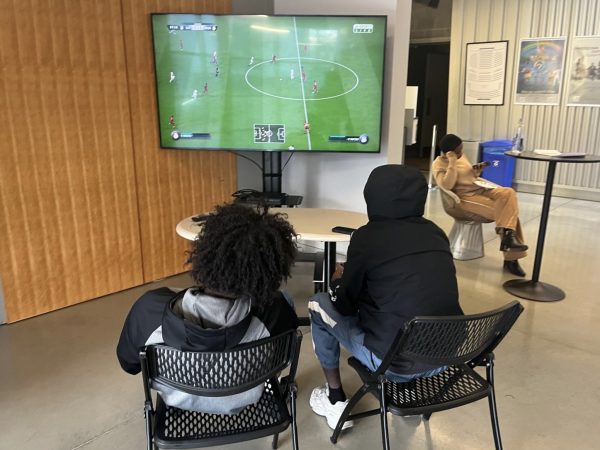
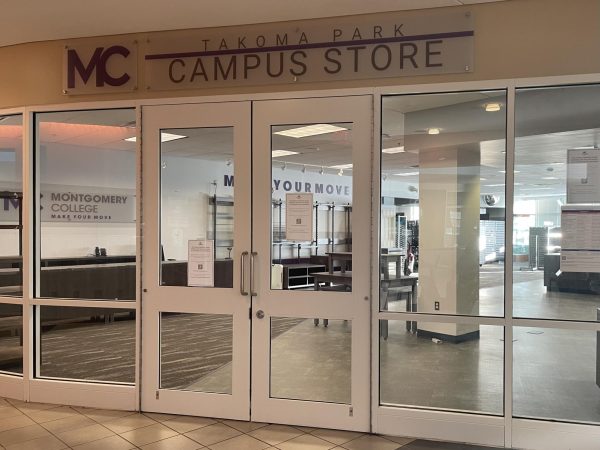
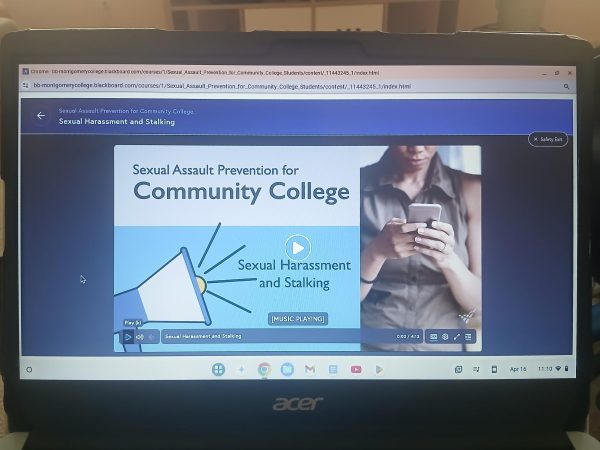
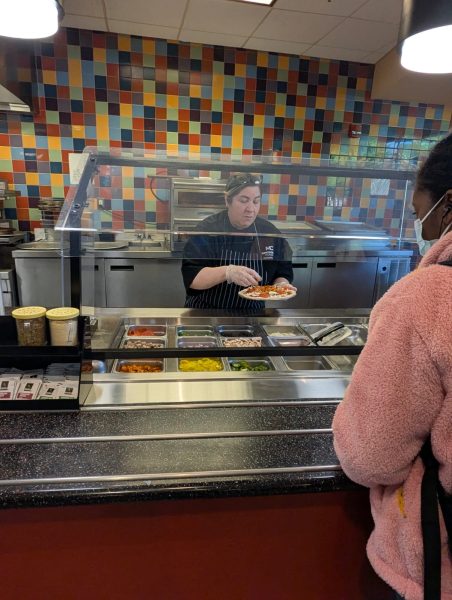
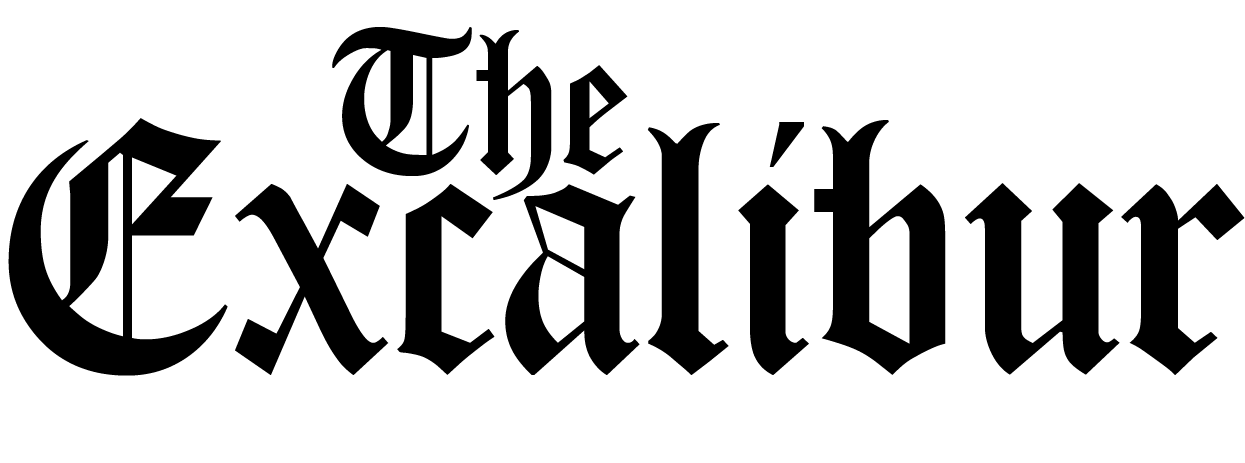
Trevor • May 14, 2022 at 5:53 pm
Great interview! Montgomery College is in good hands!